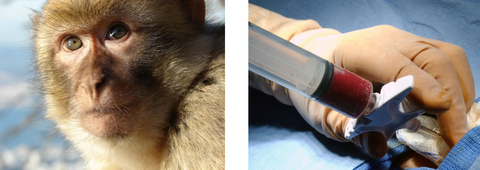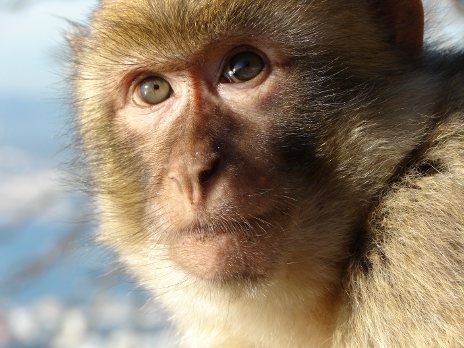
Naive Non-human Primate Whole Bone Marrow Aspirate (Rhesus)
Non-human Primates (NHP) are the closest phylogenic relatives to man. They are often indispensable in biomedical and psychological research. The rhesus monkey is the most widely used laboratory primate. They are a small, Asian old world monkey which are often used in research due to ease of rearing in captivity. Rhesus monkeys can thrive in a variety of climates and habitats. They measure about 47–64 cm (19–25 inches) long, excluding the furry 20–30-cm tail. Females average about 8.5 kg (19 pounds) and males 11 kg. Rhesus monkeys live in groups consisting of several adults of both sexes and their young; males leave the troop at maturity, whereas females tend to stay in the troops in which they were born. Sexual maturity occurs between two and three years of age.
Bone marrow is the sponge-like tissue located in the median of the long bones. The primary function of bone marrow is hematopoiesis. The hematopoietic stem cells in the bone marrow is to provide erythrocytes, leukocytes, and platelets to the body everyday. Bone marrow is also a key component of the lymphatic system, producing the lymphocytes that support the body's immune system. Bone marrow cells can be used for many research purposes.
Our Non-Human Primate bone marrow product (Rhesus) is drawn into a syringe containing heparin as an anticoagulant. All Naïve Non-Human Primate samples collected from animals housed within the United States. You can choose from Cynomolgus Monkeys or Rhesus Monkeys (Rhesus Macacus). You can also specify male or female.

~split~
Also available from 
Fisher Catalog No.: NC1966183 (Cat#: M1-011-1)






